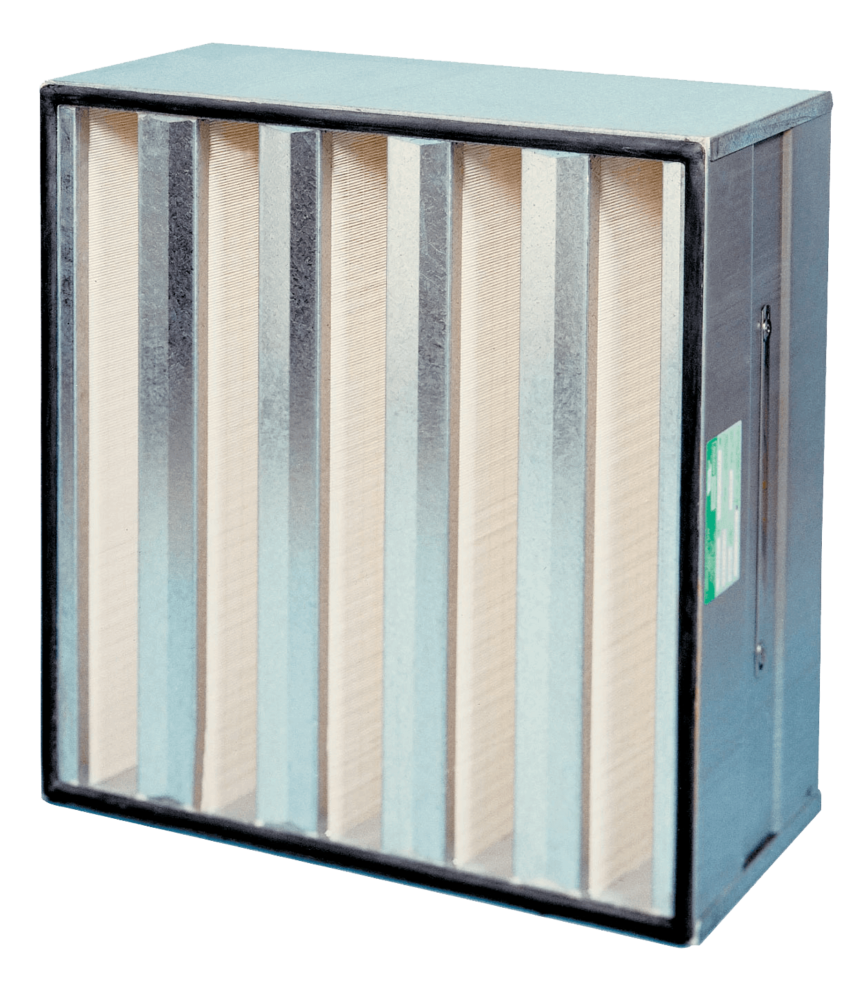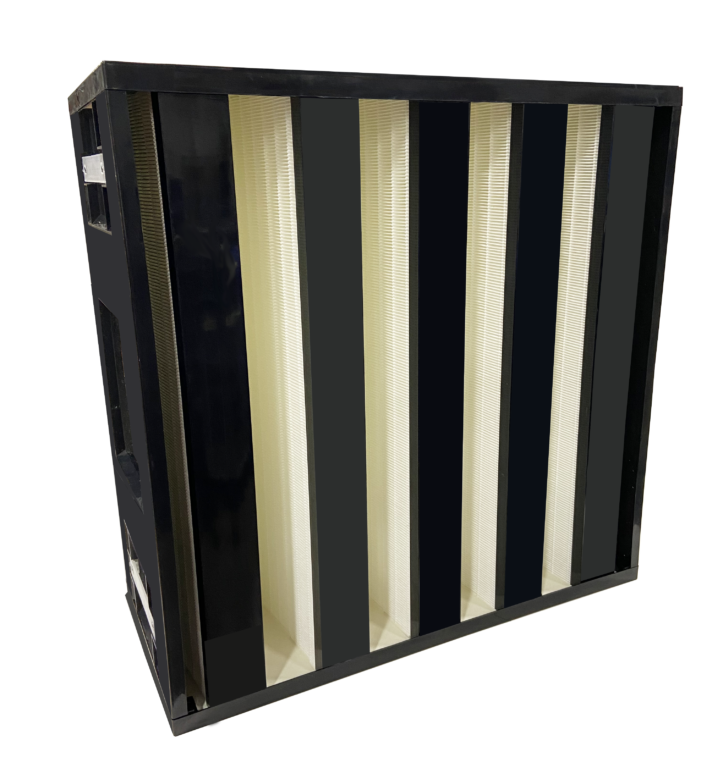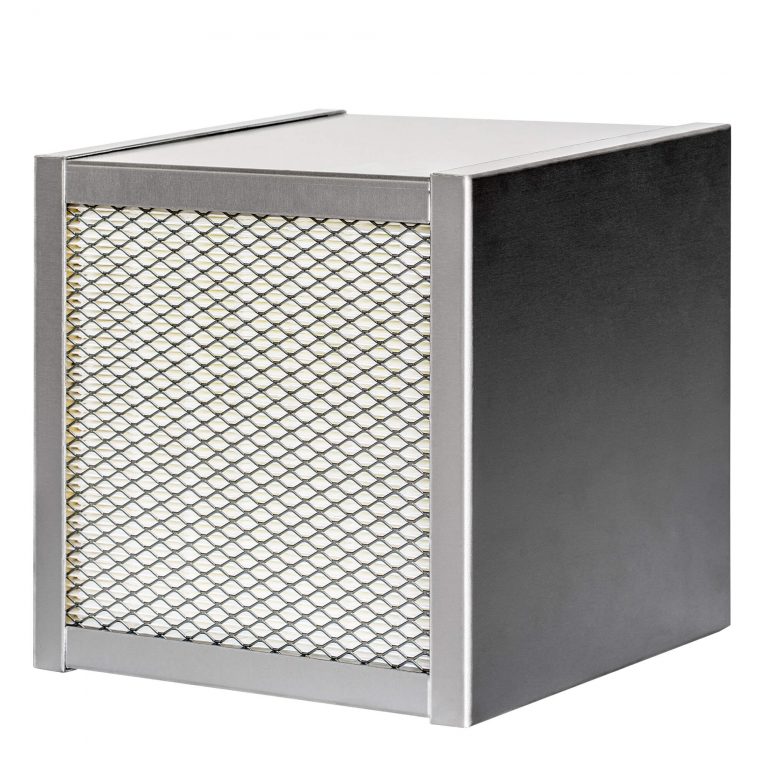Replacement Commercial HEPA Filters
The Leading Manufacturer of Custom HEPA Filters for 60+ Years
In any commercial or industrial setting, your HVAC system maintains some of the most critical environmental conditions. And yet it’s incredibly common for businesses to forget about installing replacement commercial HEPA filters on time.
So, if you need a new one, you likely need it now. That’s why at R.P. Fedder, we specialize in a quick turnaround, high quality, and great service—even if you’re placing a low-volume order.
Get a Quote
Commercial HEPA Filters: An Overview
It’s hard to understand the value of replacement commercial HEPA filters unless you know what they are and what they do. The sections below will give you a clear picture of the important role your air filters serve.
What is a Commercial HEPA Filter?
A commercial HEPA filter (short for High Efficiency Particulate Air filter) is a powerful apparatus designed to clean the air by trapping tiny particles. HEPA filters are extremely efficient—they capture at least 99.97% of airborne particles as small as .3 microns in size, which are typically the most difficult to effectively filter.
Think of a commercial HEPA filter as a highly advanced sieve. It catches not only larger dust and pollen particles, but also ultra-fine residue that’s invisible to the naked eye. This includes bacteria, mold spores, bacteria, and even certain viruses.
These filters are often the final step in a series of filters, which ensures even the tiniest, most stubborn particles are removed from the air.

Uses for Industrial and Commercial HEPA Filters
Today, quite a few industries benefit from commercial HEPA filters. One of the most common applications is to sustain cleanroom cleanliness. Achieving this requires adding HEPA filters to the facility’s HVAC equipment, which then prevents harmful particles from entering the space.
Industrial settings like food processing plants and automotive manufacturers often rely on HEPA filters too. They make it much easier and more affordable for businesses to comply with hygiene and safety regulations.
The reason this type of filtration is so prominent comes down to the fact that, as mentioned above, HEPA filters remove 99.97% of mold, dust, bacteria, pollen, and any other airborne particles as small as .3 microns. Plus, they’re incredibly cost-effective and durable.
Types of Pollutants Filtered
Your HEPA filters trap so much more than just dust and pollen molecules. Here are the main types of pollutants that are removed:
Dust and dirt
Pollen
Mold spores
Smoke particles
Bacteria and viruses
Chemical fumes
Allergens
These are present in almost any setting and can cause health issues for your workforce
As the most common allergy in the world, it’s crucial to keep pollen out of your indoor air
Even in small amounts, these can be dangerous when inhaled
Whether from tobacco, wildfires, or production processes, HEPA filters trap these particles
These filters can be very effective in reducing the spread of infectious illnesses
When paired with activated carbon, HEPA filters can reduce chemical fumes, including volatile organic compounds (VOCs)
Pollen is far from the only allergen in our environment—don’t forget about dust mites, small fibers, and smog/pollution
How Commercial HEPA Filters Work
Commercial HEPA filters are made from extremely fine fibers of glass that range between 1 and 10 microns in diameter. These tiny fibers are arranged into a crisscross pattern and then locked into a sturdy frame.
As air passes through the filter, the crisscross pattern removes particles and pollutants by trapping them in the mesh. HEPA filters specifically excel at removing particles that are .3 microns in size or larger.
However, granules ranging between .1 and .2 microns aren’t as easily captured. Some designs involve an element of electrostatic to better attract these particles.
Why Regular HEPA Filter Replacement is Crucial for Your Business
HEPA filters play quite a large role in your business’s overall efficiency. Here are the key reasons regular filter replacement is important:
- Maintaining air quality – A clogged filter won’t be able to consistently remove pollutants, allergens, and pathogens from the air
- Health and safety – High IAQ (Indoor Air Quality) is necessary in most commercial settings, especially hospitals, laboratories, and food processing facilities
- Energy efficiency – Your entire HVAC system has to work harder if your filters are clogged, which seriously cuts down on efficiency
Consequences of Putting Off Replacement
Unfortunately, it can be easy to forget about or put off replacing your HEPA filters in a timely manner. But your workforce and equipment are likely to face difficulties as a result.
Once your filters start becoming saturated with particles, they get less and less effective. This causes higher levels of dust, allergens, and pollutants in your indoor environment. As a result, your workforce may take more sick days or experience a drop in productivity.
A clogged filter is bad for your operating expenses, too. Your HVAC system will have to work harder to compensate, which eats up more energy. This increased strain can lead to higher utility bills and expensive breakdowns in your HVAC equipment.
Signs It’s Time to Order Replacement Commercial HEPA Filters
So, how do you know if you need replacement commercial HEPA filters? Here are the clear signs to look out for:
- Reduced airflow – A drop in your HVAC system’s airflow can be an indicator of a clogged filter
- More dirt and dust – If you or your employees notice more dirt and dust build-up than usual, the filter isn’t doing its job
- Higher energy bills – A sudden spike without a corresponding usage increase often means a dirty filter
Manufacturer’s recommendation – If you’ve reached the end of the filter’s lifespan based on manufacturer guidelines, it’s most likely time to swap
Custom HEPA Filters for Any and All Industries
We proudly support any and all industries that can benefit from working with a custom HEPA filter manufacturer:
- Aerospace
- Air Cleaning
- Air Purification
- Airline
- Animal Caging Systems
- Appliances
- Cabin Air Filters
- CBRN (Chemical, Biological, Radiological, and Nuclear)
- Chemical
- Cleanrooms
- Construction
- Dental Equipment
- Disaster Recovery Ventilation
- Electrical
- Food and Beverage
- Firefighting
- Fume Collection
- General Industry
- HVAC Equipment
- Hybrid Transportation Equipment
- Industrial Vacuum Systems
- Infection Isolation Rooms
- Integrated Circuit Fabrication
- Laser Cutting
- Life Sciences
- Machining and Milling
- Manufacturing Equipment
- Medical
- Military
- MOCVD
- Negative Air Machines
- Off-Road Equipment
- Petrochemical
- Pharmaceutical
- Powered Air Purifying Respirators (PAPRs)
- Precision Machining
- Protective Environment Rooms
- Remediation
- Room Air Purification
- Semiconductors
- Surgical Smoke Filters
- Surgical Suites
- Transportation
- Welding Fumes
The Do’s and Don’ts of HEPA Filters
Follow the tips below to maximize the efficiency and lifespan of your current HEPA filters. But keep in mind that all filters wear out eventually—no matter what, you’ll need to replace yours at some point.
Do install a pre-filter
Do maintain proper sealing
Don’t allow contact with oil mist
Don’t expose the filter to moisture
Because of the tight filtration mesh, bigger particles can cause your HEPA filter to clog. Adding a pre-filter for coarser particles can make a big difference.
Gaps between your filter and its housing can allow air to leak through without being filtered, which sharply reduces efficiency.
Even a slight accumulation of oil mist in your HEPA filter can lead to clogs. In these environments, install an apparatus like a mist collector to protect the filter.
Unless you’re using a HEPA filter specifically designed for excessively humid settings, moisture exposure can reduce filtration efficiency.
R.P. Fedder: Experts in Commercial HEPA Filters for 60+ Years
Since we were founded in 1959, R.P. Fedder has strived to improve and streamline filtration solutions. Over these 60+ years, our passion for cleaning the air has helped us serve facilities across countless industries.
This dedication extends to every product we offer, including our high-quality replacement commercial HEPA filters. Not exactly sure what you need or don’t see the filter you’re looking for? Contact us for help from one of our specialists.
FAQs About Replacement Commercial HEPA Filters
Do you really need to replace HEPA filters?
Yes, you do really need to replace your HEPA filters eventually. There isn’t currently a filter available that truly lasts forever, even with frequent cleaning.
But there isn’t a “one-size-fits-all” cadence to filter replacement. Some need to be replaced every three months, while others last for six to 12 months depending on the environment. Check the manufacturer’s guidelines and follow them for the best results.
Can HEPA filters be washed and reused?
Yes, some HEPA filters can be washed and reused, but not all of them can be. If your HEPA filter is washable, the label or manufacturer’s guidelines will call it out. It may also be labeled as “permanent” instead of “washable.”
Don’t wash and reuse your filter if it isn’t designed for it. Doing so can damage the filter media and make it less effective. Plus, introducing that much moisture can lead to mold growth inside the filter. It’s just not worth the risk.
How do I identify my HEPA filter?
You can identify your HEPA filter by looking in one of three places:
- Filter’s label – Your filter should have a label or tag with the manufacturer’s name, a model number, and other identifying information
- HVAC user manual – Your system’s user manual or maintenance guide likely lists the specifications for compatible filters
- Past purchase records – If you have access to these, you can identify the brand and specific model of the filter
What’s the average lifespan of a HEPA filter?
There isn’t an “average” lifespan of a HEPA filter– they can perform well for anywhere between 6 months and several years. It all depends on the environment, the model of the filter, and whether routine maintenance is performed promptly.
If for any reason you’re not sure when to replace yours, get in touch with us here at R.P. Fedder. We’ll help you determine the proper cadence and order replacement commercial HEPA filters for your specific HVAC system.

Don’t Wait—Ensure Clean Air Today
Your business relies on clean, healthy air for optimal operations. Waiting too long to replace your HEPA filters can lead to decreased air quality, higher energy costs, and potential health risks for your employees. At R.P. Fedder, we understand that when you need a replacement, you need it fast.
Order your replacement commercial HEPA filters today to maintain efficiency and protect your environment. Our specialists are ready to assist you with quick turnaround times and expert service, no matter the volume of your order.